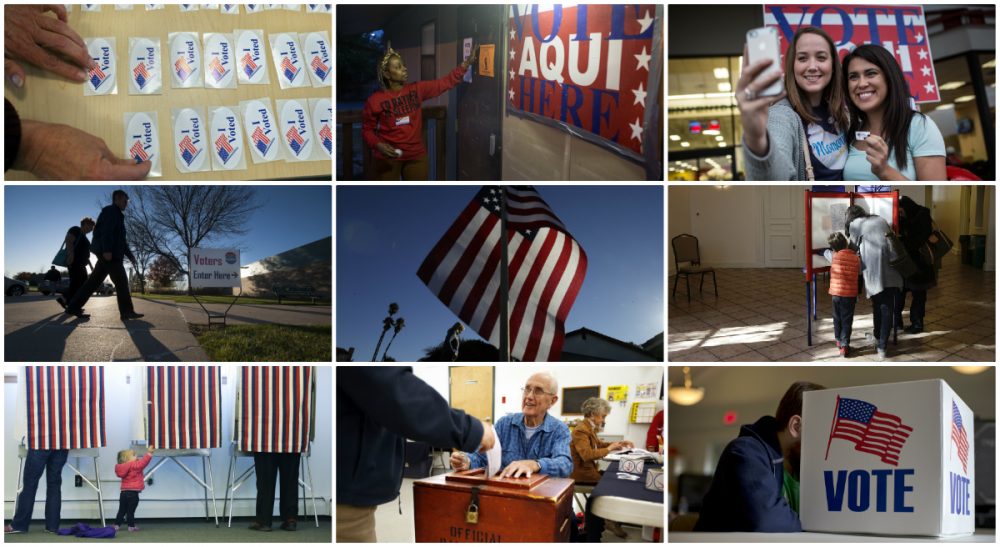Advertisement
The People Haven't Spoken: Debunking Election Hyperbole

Let’s get one thing straight before we look any further into last week’s election results: The American people did not speak last Tuesday. Republicans did not win, and Democrats did not lose because that’s what America willed, or wanted, or wished. Stop using those phrases. Stop using that language.
Instead, let’s look at the facts.
Almost every reputable news source agrees that voter turnout was miserable. In fact, there’s a fairly good chance that not even 38 percent of registered voters showed up to the polls. That’s not 38 percent of the population, that’s 38 percent of registered voters. And those numbers might not even be that high — the United States Elections Project says it might be as low as 36.3 percent.
If anything, last Tuesday’s turnout, in which the vast majority of registered voters didn’t even show up, most clearly speaks to voter fatigue, ennui, malaise and dismissal.
At least 38 states — New Jersey, Ohio, Hawaii, Indiana, California, South Carolina, Alabama, Michigan, Oklahoma, North Carolina, Texas, New Mexico, Massachusetts, etc. — reported below-average voter turnout. In fact, the last time the U.S. had such a poor turnout rate was in the middle of World War II, when a significant portion of the population was fighting overseas.
That alone tells you that the vote was not representative. At least, not for the Republicans, or against the Democrats. If anything, last Tuesday’s turnout, in which the vast majority of registered voters didn’t even show up, most clearly speaks to voter fatigue, ennui, malaise and dismissal. This is hardly surprising, given that a recent poll by the Pew Research Center shows that both the Republican and Democratic parties only have favorability rating percentages of 38 percent and 47 percent, respectively, and are viewed unfavorably by, again respectively, 54 percent and 46 percent of Americans.
But let’s look at it another way. The population of the United States is roughly 319 million, but only around 146 million of those people are actually registered to vote, at least as of July of this year. If only 36.3 percent of those registered voters showed up last week, that means somewhere around 53 million people — or roughly one-sixth of the population — actually voted.
Hardly the voice of the American people.
Advertisement
But it doesn’t just stop there. Again, since the numbers are not yet final, let’s use the results of the 2010 midterm election instead, where Republicans won 51.65 percent of the popular vote, compared to the Democrats’ 44.92 percent, and round those numbers up. That means some 27.5 million people likely voted Republican last Tuesday, and about 23.8 million voted Democratic.
Assuming those numbers are correct, Republicans only received 3.7 million more votes than Democrats. As a percentage of the number of people who actually voted, that means Republicans won by 6.98 percent. Expressed as a percentage of registered voters, Republicans won by 2.53 percent. As a percentage of the total U.S. population, 1.16 percent.
In other words, the 2014 Republican victory came about as a result of just over 1 percent of the total population of the United States.
That is not the result of America voting in favor of Republicans. Nor is it the result of America voting against Democrats. Regardless of how it’s sliced, Republicans won by a very narrow margin on the whole, and Democrats lost by a very narrow margin. The same very narrow margin that has appeared in every election for a long, long time.
In fact, it’s a recognized trend for midterm elections to favor Republicans and minority parties, and presidential elections to favor Democrats. Sources are already predicting that Democrats will win back control of the Senate in 2016, when they'll only be defending 10 seats, compared to the GOP's 24.
Republicans won, yes -- but they won by a hair, a thin margin that could have just as easily swung the other way, and most likely will in 2016.
So before some of us begin gloating about how “we’ve won,” or commiserating because “we’re doomed,” let us remember that these generalizations are not true in any important way whatsoever. Republicans won, yes — but they won by a hair, a thin margin that could have just as easily swung the other way, and most likely will in 2016.
Which means that we’re still living in a world where roughly half of voters believe one thing, and half believe the opposite.
Which means that we all still need to keep in mind that our beliefs, our ideologies, our morals, our preferences, are not universal. We all have to share. We all have to make concessions. We all have to recognize that yesterday’s win may be tomorrow’s loss.
And if we don’t learn to start talking to each other, then the bipartisan gridlock that’s stymied this country for the last six years will continue.
In which case we will all suffer the consequences.
Related:
